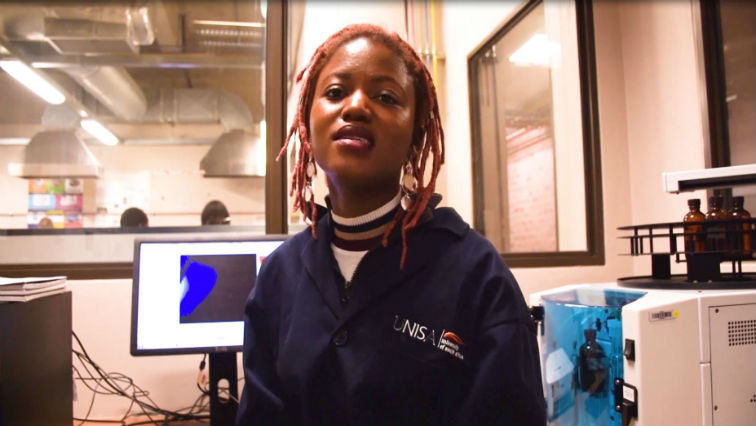Youth are taking a lead in the science industry. SABC News speaks to four young people in the chemistry field.
Thirty five-year-old, Thabo Nkambule was recently promoted to professor by the University of South Africa. He was also appointed as the head of the Nanotechnology and Water Sustainability Research Unit, which helped start.
Born and bred in the Kingdom of eSwatini, Nkambule obtained his bachelor’s degree in chemistry and mathematics from the local university. He then moved to South Africa where he passed his master’s degree in chemistry cum laude at the University of Johannesburg, and later obtained his Phd and lectured.
Nkambule then went to Delft University of Technology in Netherlands for a post-doctoral fellowship.
He says science needs money to carry out research.
Sikelelwa Ndiweni, a PhD candidate in the Nanotechnology and Water Sustainability at Unisa says her exposure to doctors in high school led to her love for science.
The 27-year-old from Alexandra won the Women in Science Awards and DST-NRF Innovation master’s scholarship in 2018. She has published two papers in high impact factor journals and has been accepted to present her research work at an international conference in Japan.
Ndiweni’s research focuses on developing a novel online monitoring tool that will assist water treatment plants to fast track pollutants in order to produce high-quality drinking water while operating in a more economically and environmentally friendly way.
Chemical engineer at the Council for Scientific and Industrial Research (CSIR), Prisha Naicker says a challenge for young people in the field is not being heard.
Thirty One-year-old, Naicker says, “So you don’t necessarily have as much skills as and expertise as the older generation and at the same time you are not far away from the age of some of the interns and students that are coming in to the organisation, so is sort of this middle ground where you have to be heard on either side, so you need to relate to your peers and to the younger staff and you also have to relate to the leaders in the organisations.”
She leads a team that is tasked at developing technologies to be used in the environment for waste treatment and in agriculture.
Chemicals Researcher at CSIR, Tshepo Patrick Nkuna says mentorship is important for young scientist to reach their full potential.
Born and bred in Stinkwater, Hammanskraal, the 32-year-old completed his undergrad in biotechnology and postgrad in biomedical technology at the Tshwane University of Technology.
Raised by his grandmother, Nkuna says he became interested in science after someone close to him contracted HIV.
His research is aimed at developing a single dose for malaria. At present malaria patients take 24 pills over three days.






